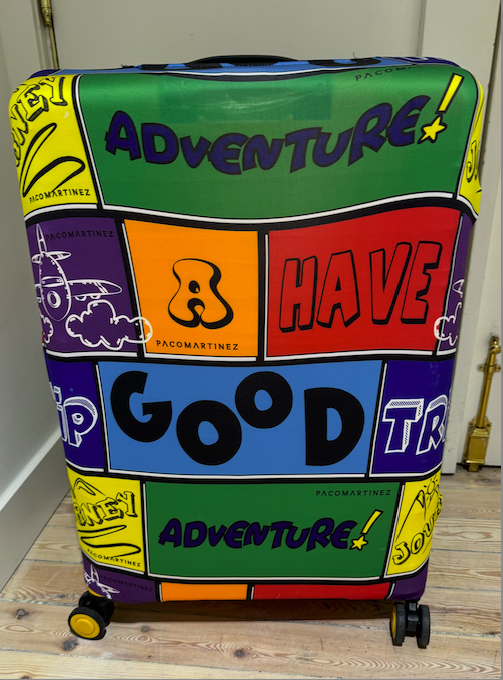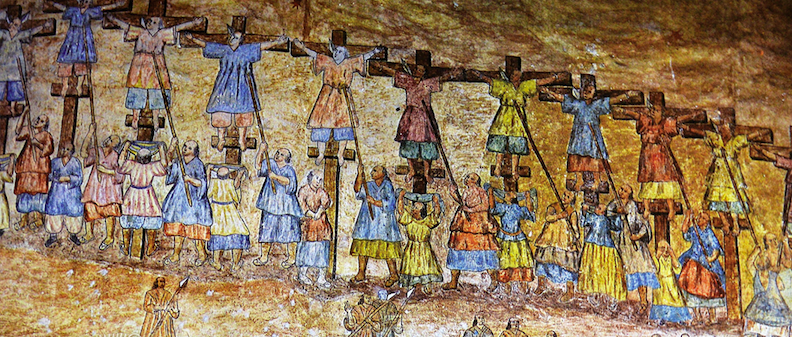These reflections are a result of more than 40 years of ministry as a Roman Catholic priest. Most of these years I spent in the Diocese of Charlotte which covers Western North Carolina. Now I am retired, and live in Medellín, Colombia where I continue to serve as a priest in the Archdiocese of Medellín.
Sunday, February 15
Today is the highlight of our trip. We visited a protective elephant sanctuary. When I was a kid, I had a spectacular experience of riding a young elephant at a zoo park in Florida. Here at the sanctuary there is no riding of elephants. The elephants here are Queen! (The elephants we interacted with were all females.) They are truly pampered ladies! https://youtu.be/XCQaqnEgonk?si=sr9BpD6YBT1xhFb-
Today I was able to feed the elephants, walk with them to the river, bathe them and get showered by them! https://youtu.be/T2EhyXvw8ps?si=2FEpolz2xkmzyW5f God worked overtime to create these magnificent, intelligent animals! Afterwards, to calm us down a bit, we hiked to a powerful waterfall, had a traditional lunch: Pad Thai, and then returned to Chiang Mai. Elephants rule!
Happy Chinese New Year 2569! Last night and this morning we visited the Chinatown Chiang Mai celebrating the Year of the Horse. We got our New Year’s shirts and are ready to receive another New Year! Chinatown was filled with smells, sights and sounds; food in abundance and happy people dressed in traditional red garments. We will celebrate the New Year in Phuket, Thailand. We fly there this afternoon. May God bless us all with peace, justice and happiness!
Wednesday, February 18
Today we visited the Phi Phi Islands. We traveled by speed boat. (I’m sure my doctor would be furious! I promise to never do it again!) There was swimming, snorkeling, sun, a baby shark birthing area and beaches. The incredible rock formations and the crystalline water make it a favorite for many visitors.
Thursday, February 19
After yesterday’s bumpy speedboat trip to Phi Phi, we cancelled today’s speedboat trip to the James Bond Islands and decided to spend a day at the Karon Beach in Phuket. We had a delicious seafood lunch and then returned to our hotel to prepare for our flights tomorrow to Siem Reap, Cambodia. Thailand and its people have been wonderful!
Friday, February 20
Today we fly to Siam Reap, Cambodia, to visit Angkor Wat, the largest religious complex in the world. There were good views of the coastal rock formations as we took off from Phuket. They served us a delicious hot meal on our short flight to Bangkok: Pad Thai, shrimp, chicken and tofu! Of course, there is a four hour layover in Bangkok, but they graciously put us in the Bangkok Airways lounge to pass the time. Bangkok Airways rocks!
Saturday, February 7
Final prep for our trip to Thailand, Cambodia and Dubai. Travel agent has been busy sending me boarding passes, visa corrections, and check-in’s. Suitcases are almost ready. Tonight is the farewell/birthday party for Óscar. Tomorrow we leave. Are we really sure we want to go see the elephants?
Sunday, February 8
At the Medellín airport ready to take off for Bogotá and the elephants! Last night the farewell/birthday party for Óscar was fantastic. Here we go!
Sunday continued:
Arrived in Bogotá without a hitch. We had a late lunch at the Avianca VIP lounge. Just left Bogotá on a somewhat empty, but very comfortable, Emirates jetliner. We head to Miami and then to Dubai and finally Bangkok. We’re watching the Superbowl and Bad Bunny. Emirates has everything!
Monday, February 9
We are somewhere over the Arabian Peninsula on our way to Dubai. Flight has been uneventful. The Dubai airport is a wealthy shopper’s paradise!
Tuesday, February 10
We arrived in Bangkok by noon. Quickest arrival process of any airport: immigration, luggage and customs. Within an hour we were in our personal transport headed to the hotel. After a nap, we ate dinner and headed out to see what we call the “grand bazaar.” There was a concert going on outside, and inside an incredible experience of 7 floors of shopping!
Wednesday, February 11
Today we visited the Royal Palace and its temples. The queen mother died in October, 2025. Her body will not be cremated until October, 2026. The people are still paying their respects. We visited the Temple of the Emerald Buddha, and crossed the river by ferry to visit the temples on the other side. They have shops to rent Thai clothes to visit the temples by the river with makeup included!
Blessings from the Padre!
Thursday, February 12
It was a fantastic day. We drove about 2 hours out of Bangkok. Then took a train for about 45 minutes to visit the Thai Train Market. The train we were on passes right through the middle of the market with booths and people right at the tracks on either side. After exiting from the train we walked through the market with its incredible sights and smells: fruits, vegetables, fish, seafood, pork, handcrafts, and the friendliest people in the world. We then drove a short way to catch a launch that took us to the floating market. Canals filled with sellers, goods, food, cooks, and buyers, all in launches. Eating at the floating market was wonderful. Best Pad Thai in the world! Venice eat your heart out!
Friday, February 13
What a lucky day! We traveled to Ayutthaya and visited the archaeological sites of the civilization that flourished between 14th-18th centuries. (https://en.wikipedia.org/wiki/Phra_Nakhon_Si_Ayutthaya_(city)?wprov=sfti1 ). There were elephants on the street lamp posts in town, as well as people enjoying elephant rides. We encountered lots of young people in traditional Thai costume. At the close of the day we enjoyed a cruise on the three rivers that surround the ancient city like an island. On the river cruise we passed a 17th century Buddhist temple, a 17th century Catholic church, and a 18th century mosque. God is truly in this land!

When Jesus disembarked and saw the vast crowd, his heart was moved with pity for them, for they were like sheep without a shepherd; and he began to teach them many things. (Mk 6:30-34)
https://bible.usccb.org/bible/readings/020726.cfm
Tomorrow we embark on a trip to Thailand, Cambodia & Dubai. I will carry you in my heart and my prayers. The Daily Reflection, the Orchid Ministry and the Sunday Mass on Facebook will be on vacation until March 8. https://youtu.be/f0YWKLNhTvE?si=FzooqWrofa6hXt6N

The king was deeply distressed, but because of his oaths and the guests he did not wish to break his word to her.So he promptly dispatched an executioner with orders to bring back his head. He went off and beheaded him in the prison. He brought in the head on a platter and gave it to the girl. The girl in turn gave it to her mother. When his disciples heard about it, they came and took his body and laid it in a tomb. (Mk 6:14-29)
https://bible.usccb.org/bible/readings/020626.cfm
There is a risk of preaching of truth to power. The Episcopal bishop of New Hampshire recently urged his priests “to get their affairs in order, to make sure they have their wills written.”¨ The bishop expects a new era of martyrdom as the church prepares to defend vulnerable people against societal violence. Saint Paul Miki (1562-1597) and his companions are the first martyrs of Japan. https://youtu.be/kJwJBnnj1gI?si=Pi0pimkcPKHKOc-3



